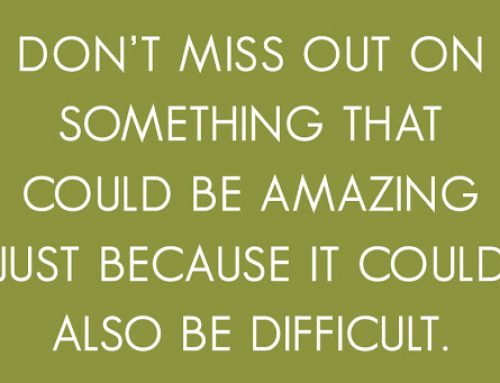The ever changing environment of technology tools and applications requires us to shift and adapt our way of thinking and working. However you may find that not all people are ready to accept changes or are eager to adapt their way of working. I, Ariel Dagan, feel that as an information specialist it is my responsibility to better understand the background and reasons behind how people react in their environment. If I am to succeed in helping those individuals who seeks to gain from my experience and knowledge then I must do my best to understand approaches that may work best with different individuals or to understand reasons why a certain person may react in some other ways than I may have expected.
Social behavior is very complex. Psychoanalysts such as Erik Erikson help us understand society and patterns of behavior throughout life. He developed a theory regarding human development and simplified it for us in what is known as “Eight Ages of Man”, a chapter from his book on Childhood and Society. Although Erickson wrote his book in 1950, his explanations, for the most part, are timeless. You may be saying to yourself “but our society today is so different than that of the 1950’s. This is true. I can start to reflect on the title of the work or the fact that governance, education reform and technology has shifted over the past 60+ years. However what Erickson writes about is timeless. He looks into concepts that are part of what defines as as people and how we interact with society. Concepts such as: confidence, trust. Erikson explains in great detail certain things that may have happened in the way a person is raised that would influence their behavior regarding how they relate to others. Erickson explains how shame and guilt come into play in building self-consciousness. How can we expect someone to strive if they have doubt regarding their ability? Erikson points out that at time some of these elements may be internal but triggered through the words and actions of those who this individual is in contact with.
Why is all of this important today? As an educator who is specializing in the areas of Library and Information Studies, it’s important for me to understand how users think, act, and perceive the information and knowledge that is all around them. My goal is to empower users of information in ways that can help them best utilize it to improve their environment and the goals and objective they or their life coaches (be it care givers or educators/mentors) have for them. By understand the theory brought by Erikson I might better understand behavior associated with fear, doubt, and shame and perhaps develop with those I come in contact with a level of trust that will lead them to greater development. So that they may take on more initiative and discover greater opportunities or areas they have not explored.
I am a practitioner of collaborative learning and project execution. In his writing, Erickson describes a stage he related to as “the inner stage”. Anyone involved in mentoring another person must be able to let the individual realize their potential. Erickson mentions the importance of steady attention and persevering diligence. He says: “we must prepare the child by teaching him things which first of all make him literate, the widest possible basic education for the greatest number of possible careers”. Yesterday President Obama brought as an example that as a society today we expect to have free wifi when we visit our coffee shops. Yet too many public educational institutions do not provide the necessary high speed internet access to prepare for the future we want them to have both as individuals and as productive working contributors of their society. Even to this aspect of life Erickson touches when he touches upon inadequacy and inferiority. As he writes:” Many a child’s development is disrupted when family has failed to prepare ….or when school life fails to sustain the promises.” He goes on and says that at this stage a person begins to feels constricted. Should we not strive to let each and every person rise to the words of the Deceleration of Independence-“..life, liberty, and the pursuit of happiness”?
I believe that this digital age of self-publication has also led to publicizing over the internet what Erickson notes is: “eager to be affirmed by his peers”. We see that Social Networks such as Instagram, Facebook and others help with this need. Yet, on the flip side they also lead to what he continues to pint out is:” ready to be confirmed by rituals, creeds … define what is evil”. What about bullying or other behavior that causes confusions or behavior that is cruel in excluding as he coins them “different”? It would not be right to say that today our access to information relating to sexuality is much more accessible then the time he published it and as we have seen again and again through various studies, although we are more connected to one another, there are a greater number of people who feel isolated and distant.
I would have to say I can relate best to Erikson’s term of “Generativity-encompassing the evolutionary development which has made man the teaching and instituting as well as learning animal”. My own personal view is that even while I strive to educate others, I continuously learn and develop myself and gain knowledge from all those who cross my path, be it online or face to face. It is my belief that the more one learns the more one develops interests that lead the person to expand what they do with their time outside of their work- or choose to pursue another line of work. One other important point that Erikson brings up is integrity. In our world, and in the time Eriskon wrote his theory, the world is filled with adult folks that lack integrity. Never the less, I believe Erikson is pointing to a stage where one eventually reaches a point in their development.
Erikson, E.H. (1995, 1950). Childhood and society 8 Ages of Man (pp. 222 -250). Childhood and society. New York: Vintage.
The clip I have enclosed does a great job of summarizing the key element of Eriksons theory. It is recommended for any person that has not read Eight Ages of Man.


























